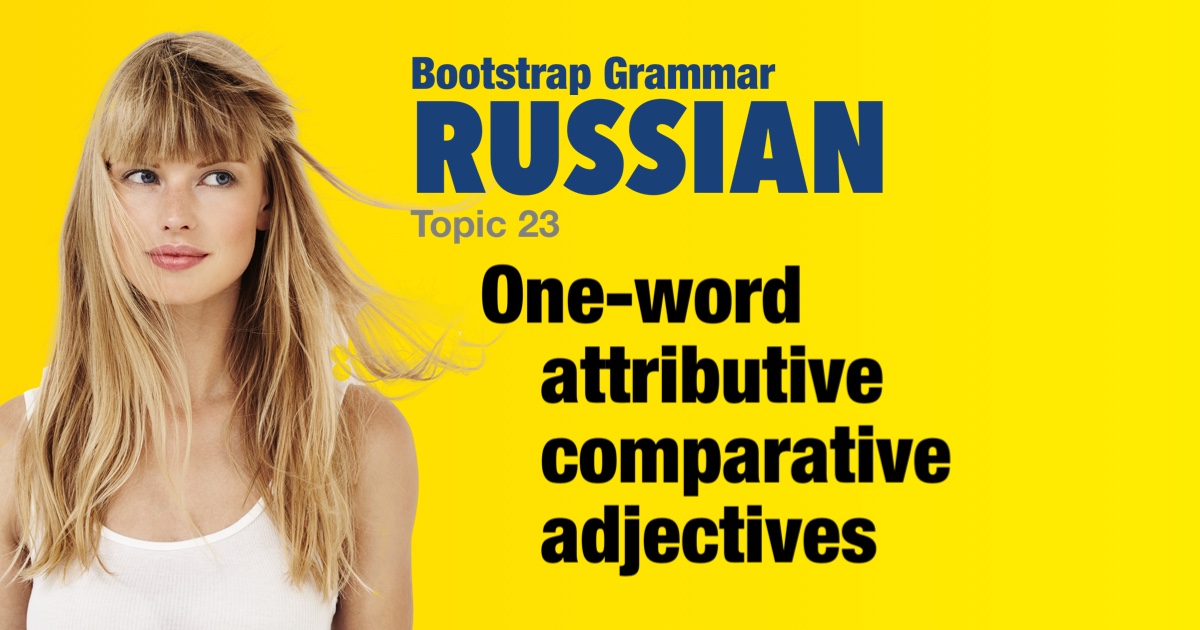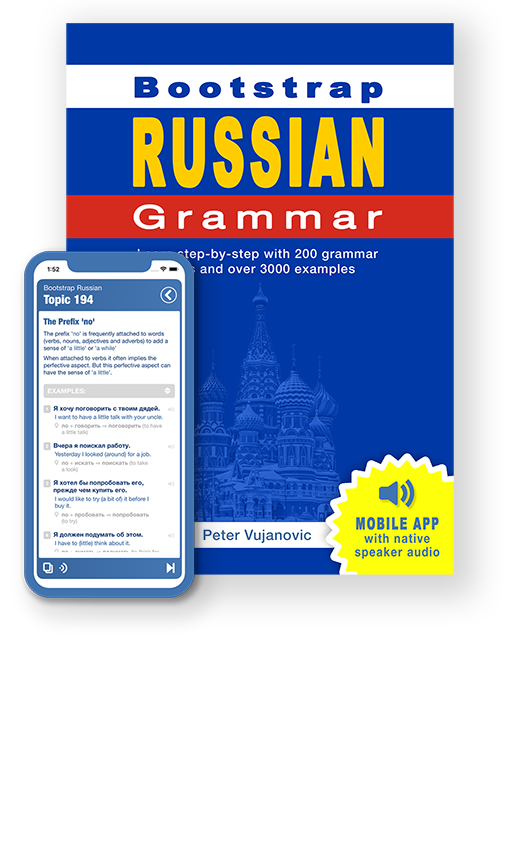Russian grammar - One-word attributive comparative adjectives |
|||
|
|||
There are six common adjectives that have one-word attributive comparative forms. • хороший (good) ⇒ лучший (better) • плохой (bad) ⇒ худший (worse) • старый (old) ⇒ старший (older) • молодой (young) ⇒ младший (younger) • большой (big) ⇒ больший (bigger) • маленький (small) ⇒ меньший (smaller) These adjectives decline according to gender, number and case. |
| Examples: | |
|
Это лучшая новость.
That is better news.
|
|
|
Это худший шторм, чем вчера.
It is a worse storm than yesterday.
|
|
|
Где старшие дети?
Where are the older children?
|
|
|
Мои младшие братья выше чем мой отец.
My younger brothers are taller than my father.
|
|
|
Он больший мужчина, чем мой дядя.
He is a bigger man than my uncle.
|
|
|
К счастью, теперь это меньшая проблема.
Thankfully, it's now a smaller problem.
|
|
|
Моя работа - лучшая работа.
My job is the best job.
|
|
|
Это худшая еда, чем когда-либо!
This is the worst meal than ever!
|
|
|
Мой старый друг сегодня дома.
My older friend is at home today.
|
|
|
Младший мальчик одинок.
The younger boy is lonely.
|
|
|
Большие яблоки вкуснее.
Those bigger apples are tastier.
|
|
|
Меньшие груши более кислые.
The smaller pears are more sour.
|
|
 |
|




